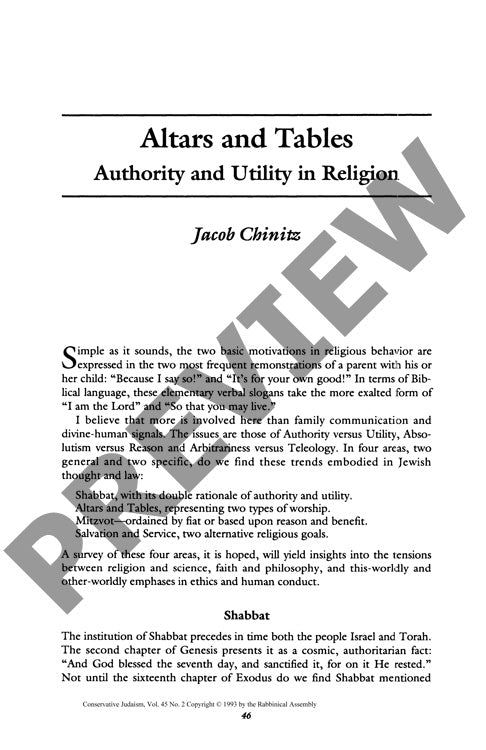Altars and Tables Authority and Utility
Couldn't load pickup availability
Judaism's evolution from altar-centered sacrifice to table-centered sustenance reveals a fundamental tension that shapes religious behavior: the competing imperatives of divine authority and human utility. While Christianity moved toward sacrificial altars, Jewish thought increasingly balanced unconditional divine commands ("because I say so") with rational benefits ("for your own good"). This tension manifests across four key domains: Shabbat's dual rationale of divine decree and human wellbeing; the symbolic opposition between sacrificial altars and sustaining tables; the classification of mitzvot as either divinely ordained or rationally explicable; and the religious goals of service versus salvation. Through comparative textual analysis of biblical, talmudic, and liturgical sources - including Genesis, Exodus, Deuteronomy, Talmudic passages, and medieval commentaries - alongside Christian interpretations, a pattern emerges of Judaism consistently integrating both authoritarian and utilitarian elements. Rather than demanding purely unconditional service, Jewish religious thought cultivates a relationship requiring both obedience and rational justification, offering insights into broader tensions between religion and reason, faith and philosophy, and this-worldly versus otherworldly emphases in religious ethics.

More Information
-
Physical Description
-
Publication Information
Published
ISBN
-
Publication Credits
Jacob Chinitz

